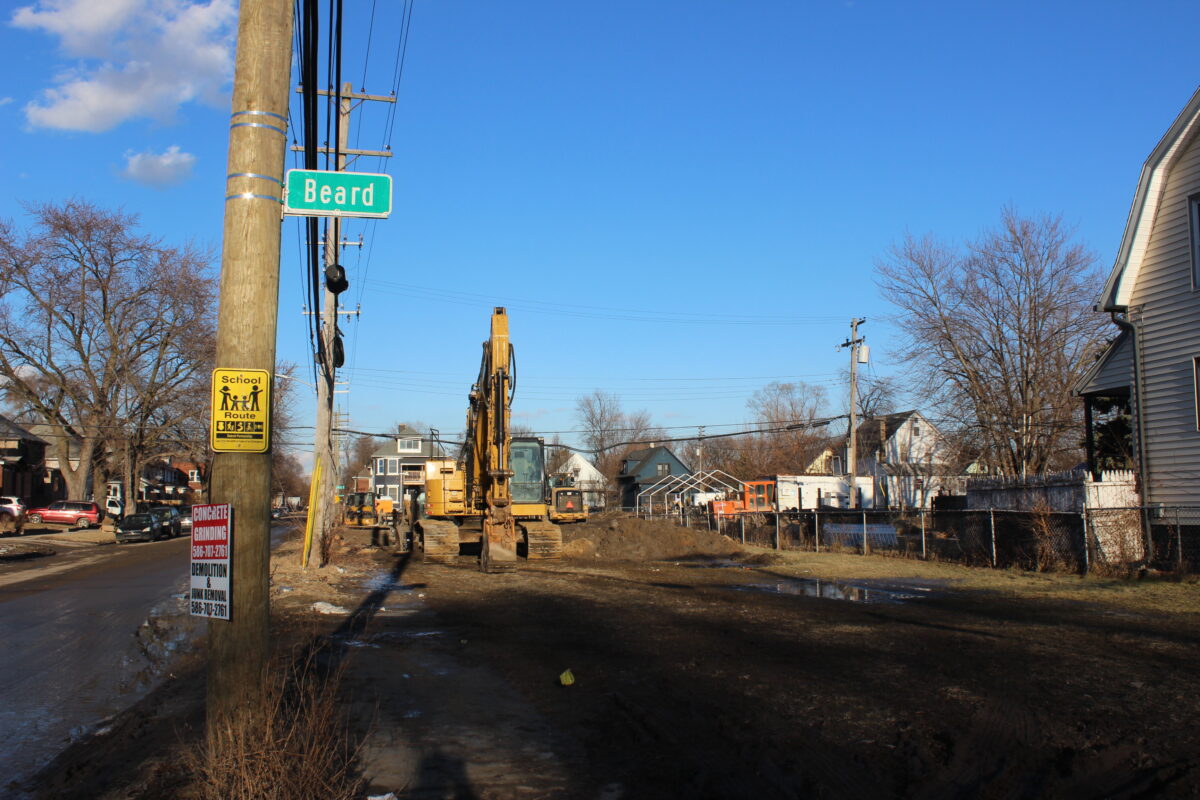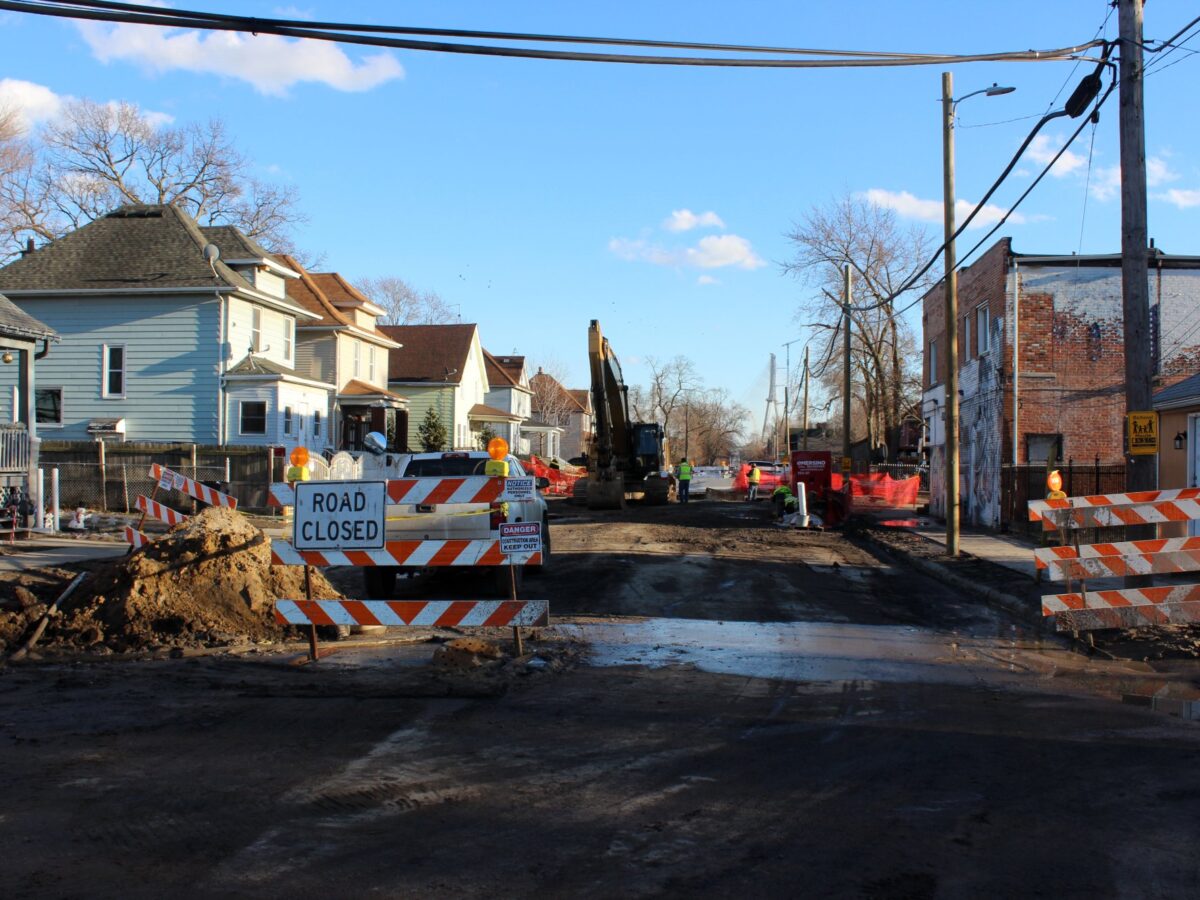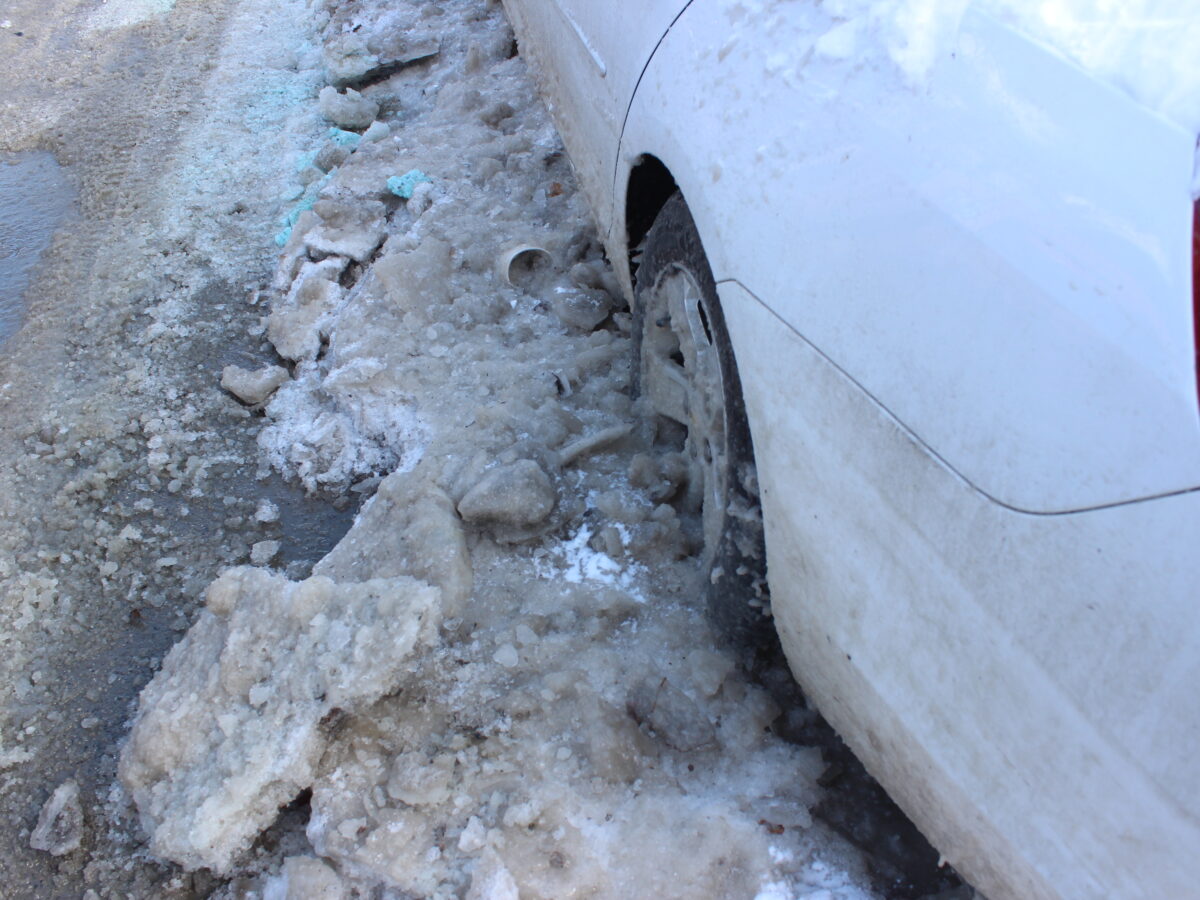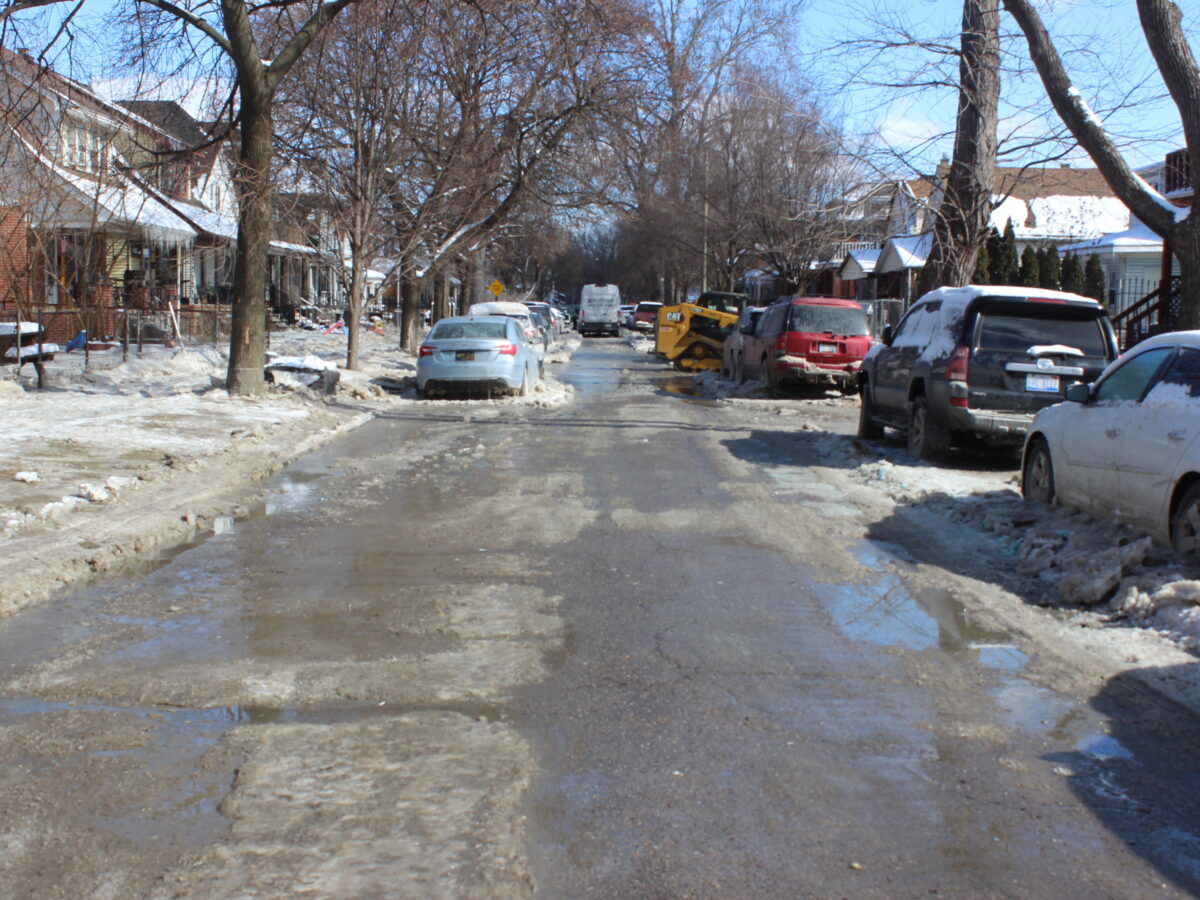Overview:
-Experts say extreme cold and heat can lead to water main breaks.
-Winter conditions complicate repairs, as snow and ice hinder access to valves.
-Burying pipes deeper could mitigate future breaks, though it won't eliminate them entirely.
The Feb. 17 water main break in Southwest Detroit that flooded several blocks and left hundreds of residents unhoused followed a period of extreme cold temperatures. What role does the climate and weather play in the city’s infrastructure failures?
The official cause of the water main break is under investigation, but experts say that extreme hot or cold weather can cause metal to expand and contract. “Weather whiplash” events, where relatively warm temperatures are followed by extreme cold, can be especially damaging, making pipes more brittle and leading to water main breaks, while frozen or overly dry soil can also stress aging pipes.
“Extreme cold or extreme heat will produce water main breaks,” Palencia Mobley, CEO and founder of the Mode Collective, a firm that consults on water infrastructure projects, told Planet Detroit.
Water mains can undergo “thermal shock,” when a sudden shift in temperature causes a material to crack, Mobley said, comparing it to what happens to a glass when it’s taken out of a hot dishwasher and filled with cold water.
Mobley, who previously served as deputy director and chief engineer for the Detroit Water and Sewerage Department, said most water main breaks in DWSD’s system occur mid-winter or in July and August, noting that during the record-setting cold of the winter of 2014, hundreds of small water main breaks occurred in the city each month.
DWSD’s water mains average 176 breaks in February since 2019
The Southwest Detroit water main break occurred during a cold spell when temperatures dropped into the single digits. DWSD spokesperson Bryan Peckinpaugh said the cause of the failure is still being investigated.
The Great Lakes Water Authority manages the water main that burst last month, but DWSD is in charge of many smaller mains. DWSD’s system experienced 232 water main breaks in February 2019, a year when extreme cold gripped the region. This was greater than any February between 2020 and 2024, a period during which the average number of water main breaks for that month was 165, according to data supplied by DWSD.
GLWA was not immediately able to provide Planet Detroit with information on water main breaks over the last decade, but said its system experienced four breaks in 2024.
A water main’s age can influence the likelihood of a catastrophic rupture. A 100-year lifespan is generally recommended for water mains, Mobley said.
The water main that failed in Southwest Detroit last month was built in the 1930. Water mains built in the early 1940s, when resources were being directed to the U.S. war effort, are thinner and more vulnerable to failure than slightly older pipes, Mobley said.
Winter ‘whiplash,’ prolonged summer heat threaten water mains
The rapid change between hot and cold periods could be increasing with human-caused climate change, leading to more burst pipes, said Richard Rood, a climate scientist at the University of Michigan.
“One of the things we expect from climate is … more extreme jumps between warm and cold,” he said, adding that this dynamic could produce the kind of expansion and contraction of materials that can damage water mains.
He emphasized that Michigan winters are becoming hotter overall and that even periods of extreme cold are generally warmer, although variability in winter may be growing.
Michigan is seeing less variability in summer temperatures, although there’s an increase in hot days overall, Rood said.
“Heat season is getting longer, but what you’re seeing is more persistent heat … we are not seeing a large increase in the most extreme days,” he said, adding that he expects more Michigan heat records to be set in September than the middle of summer.
The Mode Collective’s Mobley said this heat can cause pipes to expand and potentially break, but hot weather can also dry out soils and lead to shifting, undermining water mains.
She added that prolonged spells of warm weather, even if it isn’t extremely hot, can increase the likelihood of water main breaks as people consume more water and put pressure on the system.
Winter weather makes water main breaks more difficult to address
Although both winter and summer can see spikes in water main breaks, winter conditions make it especially challenging to address burst pipes, Mobley said.
“If you have snow and ice on the ground, it’s harder to locate where your valves are,” she said.
Workers need to find shutoff valves to isolate a section of broken pipe and stop water from filling nearby streets and basements. Ice and snow make it harder to find the manhole covers needed to access these valves and ice will often need to be chipped away to gain access, Mobley said.
Water main breaks on side streets like the one where Southwest Detroit’s rupture occurred could be more difficult to address in winter because the city often doesn’t plow snow on these streets, she said.
One strategy for preventing water main breaks in the future could be to bury pipes more deeply to protect them from the cold, Mobley said.
She cautioned such measures would only reduce the overall number of water main breaks, not prevent them entirely.
“It’s not necessarily preventable.”
Editor’s note: This story has been corrected to accurately reflect historical water main break data from DWSD, which is for the month of February only, and to correct a reference to water — not sewer — mains undergoing “thermal shock.”
SOUTHWEST DETROIT FLOOD
Southwest Detroit flood repairs will take 6 weeks ‘minimum’
In the wake of the Southwest Detroit flood, city officials project a six-week timeline to restore homes. ‘It’s sad,’ says Elvin Nolasco, whose parents are staying in a hotel.
What we’re reading: Detroit flood victims face waiver dilemma for city-funded repairs
Detroit residents impacted by last week’s water main break flood were asked to sign a liability waiver before receiving city-funded repairs, raising concerns and skepticism. Meanwhile, General Motors is investing $400,000 in Detroit-based Matrix Human Services to launch a pilot workforce program training 40 Detroiters for clean energy and EV industry jobs.
Southwest Detroit homes flooded, families displaced by water main rupture
A 54-inch water main rupture in Southwest Detroit has flooded homes and displaced families.




